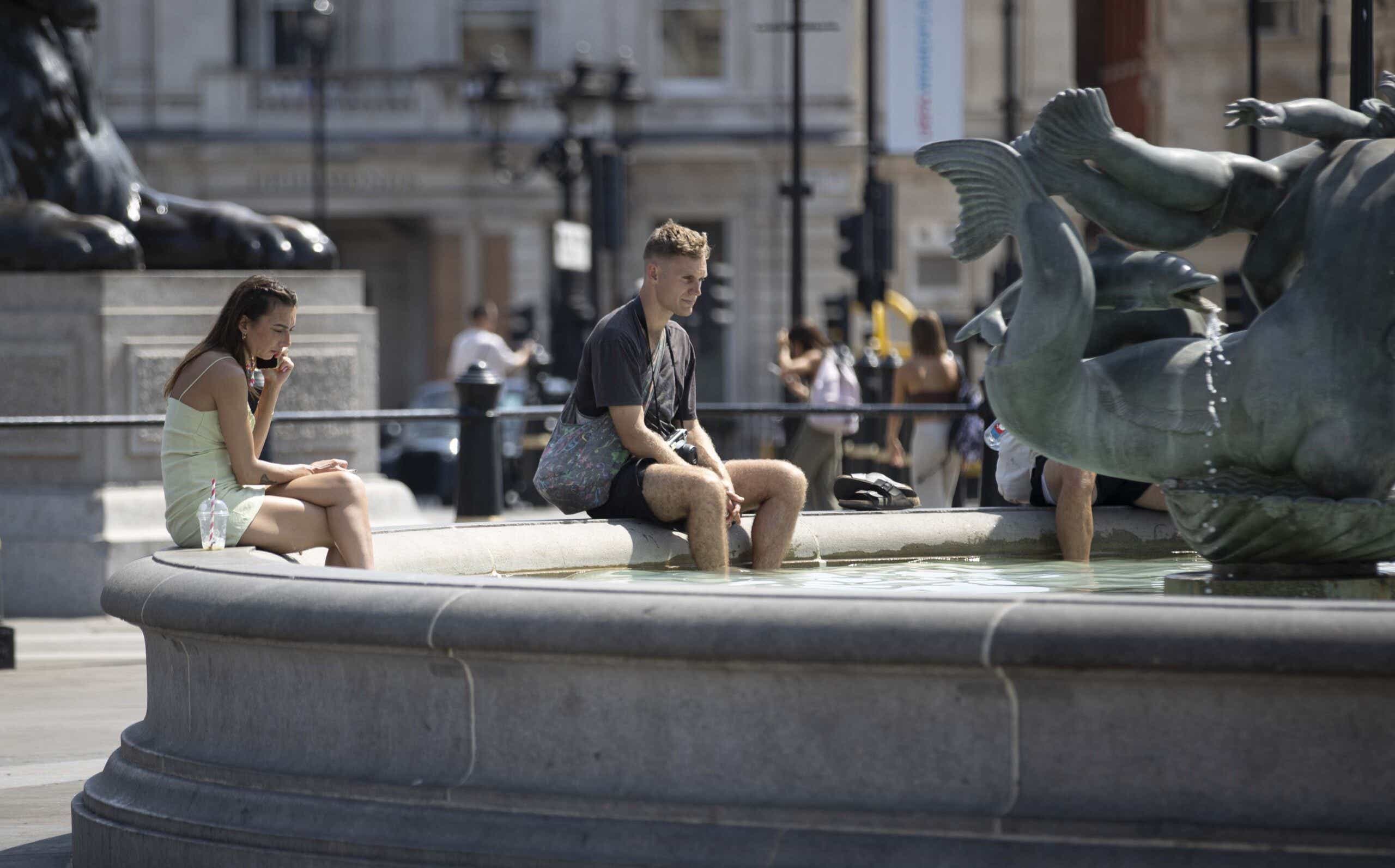As anyone with pals across the pond will have noticed, the UK has ground to a halt amid extreme temperatures that forecasters didn’t anticipate arriving until 2050.
The highest temperatures are expected today, with some areas predicted to reach 108 degrees Fahrenheit. By lunchtime the country’s all-time temperature record had already been broken, when readings at Heathrow passed 104F. For comparison, the average daily high for July in the UK is 70 degrees Fahrenheit.
The Met Office has issued a red extreme heat warning indicating a threat to life, and doctors are urging the population to take the unfamiliar heat seriously. Both accidents as a result of attempts to cool off and physical side effects from the oppressive heat are on the rise.
On July 18, a 16-year-old boy died after struggling to swim in a lake in southern England. According to the Metropolitan Police, a 14-year-old boy is believed to have drowned after entering the Thames river in southwest London. Several other people have reportedly lost their lives while trying to swim or dunk themselves in open water.
Older people, babies, and populations with chronic health conditions are at most risk of adverse effects during this weather. Heat causes blood vessels to open up, which in turn lowers blood pressure. This can lead to symptoms including nausea, dizziness, muscle cramps, and in extreme cases, heart attacks.
At the very least, almost the entire population is extremely sleep-deprived, as it has been impossible to get cool, even indoors, for days now. With nighttime temperatures far exceeding what Brits are used to in the daytime, there’s been little chance to cool off. Parents in particular are struggling, as many schools have closed temporarily.
The population is desperately trying to keep out of the sun — in buildings that tend not to have AC, and are actually built to retain heat. Commuters have been advised to stay home if at all possible, since the safety of the UK’s steel rail tracks, which were not built to cope with such heat, cannot be guaranteed.
Roads are melting, and one seaside hospital apparently suffered a mild seagull invasion while attempting to encourage a through breeze by opening the windows and doors.









